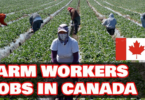Healthcare Jobs in Canada with Visa Sponsorship: A Comprehensive Guide
Canada’s healthcare system is experiencing unprecedented staffing shortages across multiple disciplines. This situation has created a wealth of opportunities for international healthcare professionals looking to advance their careers while enjoying Canada’s high quality of life and path to permanent residency.
With a rapidly aging population and growing demand for healthcare services, Canadian employers are increasingly willing to sponsor qualified foreign workers through various immigration pathways. This comprehensive guide explores the landscape of healthcare jobs in Canada that offer visa sponsorship, the requirements for international applicants, and practical steps to secure these positions.
Understanding Canada’s Healthcare System
Canada’s publicly funded healthcare system, Medicare, provides universal coverage for necessary medical services to citizens and permanent residents. The system operates on a provincial level, with each province and territory administering its own healthcare programs within federal guidelines.
Key Components of Canadian Healthcare
The Canadian healthcare system encompasses various settings where healthcare professionals can find employment:
- Hospitals: From large urban teaching hospitals to small rural facilities
- Community health centers: Providing primary care services to local populations
- Long-term care facilities: Serving the elderly and chronically ill
- Private clinics: Offering specialized services often not covered by Medicare
- Telehealth services: Growing rapidly, especially in remote communities
- Research institutions: Advancing medical knowledge and practices
- Public health agencies: Focusing on population health and disease prevention
Healthcare in Canada faces several challenges, including staffing shortages in various specialties and geographic areas. These challenges have led to increased recruitment of international healthcare professionals, particularly in underserved communities where shortages are most severe.
In-Demand Healthcare Positions with Visa Sponsorship
The following healthcare roles are particularly in demand across Canada, with many employers willing to provide visa sponsorship for qualified candidates:
Physicians and Specialists
Canada faces a significant shortage of physicians, particularly in family medicine and certain specialties. The Canadian Medical Association estimates that nearly five million Canadians lack a regular family doctor, creating urgent demand for:
- Family physicians/General practitioners
- Psychiatrists
- Anesthesiologists
- Emergency medicine specialists
- Radiologists
- Oncologists
- Cardiologists
- Pediatricians
- Geriatricians
Internationally trained physicians often find opportunities in rural and remote communities, where shortages are most acute. Programs like the Rural and Northern Immigration Pilot specifically target healthcare professionals for these underserved areas.
Nursing Professionals
Nurses represent the largest group of healthcare providers in Canada, with critical shortages across all specialties:
- Registered Nurses (RNs)
- Licensed Practical Nurses (LPNs)
- Nurse Practitioners (NPs)
- Psychiatric Nurses
- Critical Care Nurses
- Operating Room Nurses
- Emergency Room Nurses
- Geriatric Nurses
- Public Health Nurses
According to the Canadian Nurses Association, Canada will need over 60,000 additional nurses by 2027 to meet growing healthcare demands, making nursing one of the most sponsorship-friendly healthcare professions.
Allied Health Professionals
Various allied health professions are experiencing significant workforce gaps:
- Pharmacists and Pharmacy Technicians
- Medical Laboratory Technologists
- Medical Radiation Technologists
- Respiratory Therapists
- Physiotherapists
- Occupational Therapists
- Speech-Language Pathologists
- Audiologists
- Dietitians and Nutritionists
These specialized roles often come with competitive salaries and benefits, along with opportunities for visa sponsorship, particularly in provinces with aging populations like British Columbia and Nova Scotia.
Mental Health Professionals
With growing recognition of mental health needs, demand for qualified professionals has surged:
- Clinical Psychologists
- Psychiatric Nurses
- Social Workers (specialized in mental health)
- Mental Health Counselors
- Addiction Specialists
- Child and Youth Workers
The COVID-19 pandemic has significantly increased demand for mental health services, creating additional opportunities for internationally trained mental health professionals.
Long-Term Care Professionals
Canada’s aging population has intensified the need for professionals in elderly care:
- Personal Support Workers (PSWs)
- Continuing Care Assistants
- Home Support Workers
- Gerontologists
- Long-Term Care Nurses
- Recreational Therapists for seniors
The long-term care sector experienced severe staffing challenges during the pandemic, increasing the willingness of employers to sponsor foreign workers to fill critical roles.
Regional Healthcare Opportunities Across Canada
Healthcare needs vary significantly across Canada’s provinces and territories, creating diverse opportunities for international professionals:
Ontario
As Canada’s most populous province, Ontario offers numerous healthcare opportunities in urban centers like Toronto, Ottawa, and Hamilton, as well as in underserved rural areas. The Ontario Provincial Nominee Program (OINP) includes streams for skilled workers in healthcare. Major employers include:
- University Health Network
- Sunnybrook Health Sciences Centre
- The Ottawa Hospital
- Hamilton Health Sciences
- London Health Sciences Centre
Ontario’s healthcare system employs over 200,000 nurses and 30,000 physicians, with ongoing recruitment to address shortages.
British Columbia
Known for its scenic beauty and mild climate, British Columbia faces significant healthcare staffing challenges, particularly in rural communities. The provincial health authority actively recruits internationally through the BC Provincial Nominee Program. Key employers include:
- Vancouver Coastal Health
- Fraser Health Authority
- Provincial Health Services Authority
- Island Health
- Interior Health
British Columbia’s healthcare workforce needs are projected to grow by 25% over the next decade, creating substantial opportunities for international recruitment.
Alberta
Alberta offers competitive salaries for healthcare workers and a lower cost of living compared to provinces like British Columbia and Ontario. The Alberta Immigrant Nominee Program (AINP) provides pathways for healthcare workers. Major employers include:
- Alberta Health Services (the single provincial health authority)
- Covenant Health
- University of Alberta Hospital
- Foothills Medical Centre
Alberta Health Services employs over 100,000 healthcare workers and continually recruits internationally to meet provincial needs.
Quebec
Quebec’s healthcare system operates primarily in French, creating opportunities for bilingual healthcare professionals. The Quebec Experience Program provides immigration pathways for workers with French language proficiency. Major employers include:
- McGill University Health Centre
- Centre hospitalier de l’Université de Montréal
- CHU de Québec-Université Laval
- CIUSSS organizations (Integrated Health and Social Services Centers)
Quebec faces significant staffing shortages, particularly in nursing, with approximately 4,000 nursing positions vacant across the province.
Atlantic Provinces
New Brunswick, Nova Scotia, Prince Edward Island, and Newfoundland and Labrador offer excellent opportunities for healthcare professionals seeking a balanced lifestyle and more affordable living costs. The Atlantic Immigration Program specifically targets healthcare workers. Notable employers include:
- Horizon Health Network (New Brunswick)
- Nova Scotia Health Authority
- Health PEI
- Eastern Health (Newfoundland)
These provinces face significant challenges with aging populations and healthcare worker retention, increasing opportunities for international recruitment.
The Territories
Yukon, Northwest Territories, and Nunavut offer unique experiences and often higher compensation packages for healthcare professionals willing to work in remote locations. The Territorial Nominee Programs provide immigration pathways. Major employers include:
- Yukon Hospital Corporation
- Northwest Territories Health and Social Services Authority
- Government of Nunavut Health Services
Healthcare workers in the territories often receive northern allowances, isolation pay, and other incentives that can significantly increase their total compensation package.
Immigration Pathways for Healthcare Professionals
Several immigration programs specifically target healthcare professionals for Canadian work permits and permanent residency:
Express Entry System
The primary pathway for skilled healthcare professionals, with three programs:
- Federal Skilled Worker Program: For those with work experience in NOC TEER 0, 1, 2, or 3 occupations
- Canadian Experience Class: For those with at least one year of Canadian work experience
- Federal Skilled Trades Program: For qualified tradespeople
Healthcare professionals often score well in the Comprehensive Ranking System (CRS) due to their education, work experience, and in-demand skills.
Provincial Nominee Programs (PNPs)
Each province and territory operates its own PNP, many with healthcare-specific streams:
- British Columbia PNP Healthcare Professional Category: Targets physicians, specialists, and nurses
- Saskatchewan Healthcare Professionals Stream: Focuses on various healthcare occupations
- Manitoba Healthcare Workers Stream: Streamlined nomination for healthcare workers
- Ontario Human Capital Priorities Stream: Often prioritizes healthcare workers
- Nova Scotia Physician Stream: Specifically for doctors willing to work in underserved areas
PNPs often provide faster pathways to permanent residency than federal programs, especially for those willing to work in underserved areas.
Rural and Northern Immigration Pilot (RNIP)
This community-driven program helps smaller communities attract and retain skilled foreign workers, with healthcare professionals being high-priority candidates. Participating communities include:
- Thunder Bay, Ontario
- Sudbury, Ontario
- Timmins, Ontario
- Sault Ste. Marie, Ontario
- North Bay, Ontario
- Vernon, British Columbia
- West Kootenay, British Columbia
- Brandon, Manitoba
- Moose Jaw, Saskatchewan
- Claresholm, Alberta
- Altona/Rhineland, Manitoba
Healthcare professionals receive priority processing under this program, with connections to specific job opportunities in these communities.
Atlantic Immigration Program
This program helps employers in New Brunswick, Nova Scotia, Prince Edward Island, and Newfoundland and Labrador hire foreign workers for positions they cannot fill locally. Healthcare occupations are consistently in high demand through this program.
Temporary Foreign Worker Program (TFWP)
While not a direct pathway to permanent residency, the TFWP allows Canadian healthcare employers to hire foreign workers when Canadians or permanent residents are unavailable. Healthcare occupations often qualify for expedited processing through the Global Talent Stream.
Credential Recognition and Licensing Requirements
One of the most significant challenges for internationally educated healthcare professionals is obtaining recognition of their credentials and securing appropriate licensing:
Physicians
International medical graduates (IMGs) must complete several steps:
- Verification of medical credentials through the Medical Council of Canada (MCC)
- Passing the Medical Council of Canada Qualifying Examination (MCCQE) Parts 1 and 2
- Completing a residency program in Canada (possibly shortened for experienced physicians)
- Obtaining licensure from the provincial/territorial medical regulatory authority
The process typically takes 3-7 years, though some provinces have introduced accelerated pathways for experienced specialists.
Nurses
Internationally educated nurses must:
- Have credentials assessed by the National Nursing Assessment Service (NNAS)
- Register with the provincial/territorial nursing regulatory body
- Complete additional education or bridging programs as required
- Pass the NCLEX-RN examination (for Registered Nurses)
- Demonstrate language proficiency in English or French
The process typically takes 1-3 years, depending on the province and the nurse’s background.
Pharmacists
International pharmacy graduates must:
- Have credentials evaluated by the Pharmacy Examining Board of Canada (PEBC)
- Pass the Evaluating Examination and Qualifying Examination
- Complete internship hours as required by the provincial regulatory body
- Register with the provincial regulatory authority
- Demonstrate language proficiency
This process typically takes 1-2 years to complete.
Allied Health Professionals
Requirements vary by profession but generally include:
- Credential assessment by the appropriate national body
- Registration with the provincial regulatory college
- Completion of any required examinations or additional training
- Language proficiency demonstration
Several provinces have established offices specifically to help internationally educated healthcare professionals navigate the licensing process, such as:
- Access Centre for Internationally Educated Health Professionals (Ontario)
- International Medical Graduate Program (British Columbia)
- International Pharmacy Graduate Program (University of Toronto)
Practical Steps to Secure a Healthcare Job with Visa Sponsorship
The following strategic approach can help international healthcare professionals secure positions with Canadian employers:
Research and Preparation
- Verify eligibility for Canadian immigration programs: Use the Come to Canada tool on the Immigration, Refugees and Citizenship Canada (IRCC) website
- Begin credential recognition process early: This can often be initiated before arriving in Canada
- Improve language skills: Achieve Canadian Language Benchmark (CLB) 9 or higher in English or French
- Research regional opportunities: Focus on provinces with the highest demand for your specialty
- Understand licensing requirements: Contact the appropriate regulatory body for your profession
Job Search Strategies
- Provincial health authority websites: Most post international recruitment opportunities
- Specialized healthcare recruitment agencies: Examples include:
- Health Force Ontario
- Health Match BC
- Doctors Nova Scotia
- MedRecruit
- HFO MedJobs
- Professional association job boards: Such as:
- Canadian Medical Association
- Canadian Nurses Association
- Canadian Pharmacists Association
- Canadian Association of Medical Radiation Technologists
- Healthcare job fairs: Many provincial health authorities conduct international recruitment events
- Networking with diaspora communities: Connect with healthcare professionals from your country who have successfully immigrated to Canada
Application and Interview Process
- Customize resumes and cover letters: Highlight experience that addresses specific Canadian healthcare challenges
- Prepare for virtual interviews: Canadian employers often conduct initial screening via video calls
- Emphasize adaptability: Showcase your ability to work in diverse cultural environments
- Highlight rural experience: Experience in remote or underserved communities is highly valued
- Demonstrate commitment to Canada: Employers prefer candidates who plan to stay long-term
Negotiating Visa Sponsorship
- Understand employer obligations: Employers must obtain a Labour Market Impact Assessment (LMIA) unless the position is LMIA-exempt
- Be aware of costs: Some employers may ask candidates to share visa application costs
- Consider contract length: Visa sponsorship often comes with minimum service commitments
- Discuss relocation assistance: Many healthcare employers offer relocation packages
- Ask about permanent residency support: Some employers assist with permanent residency applications after a probationary period
Salary Expectations and Benefits
Healthcare salaries in Canada vary by profession, experience, specialization, and location:
Physicians
- Family Physicians: CAD $250,000-$300,000 annually
- Specialists: CAD $300,000-$500,000+ annually
- Surgeons: CAD $400,000-$600,000+ annually
Physicians in rural and remote areas often earn 20-30% more than their urban counterparts due to incentive programs.
Nurses
- Registered Nurses: CAD $75,000-$95,000 annually
- Nurse Practitioners: CAD $100,000-$120,000 annually
- Specialized Nurses (ICU, OR, ER): CAD $85,000-$110,000 annually
Nurses working in northern communities often receive substantial allowances and bonuses.
Allied Health Professionals
- Pharmacists: CAD $90,000-$120,000 annually
- Physiotherapists: CAD $75,000-$95,000 annually
- Medical Laboratory Technologists: CAD $70,000-$85,000 annually
- Respiratory Therapists: CAD $70,000-$90,000 annually
Benefits Packages
Canadian healthcare employers typically offer comprehensive benefits including:
- Extended health insurance (dental, vision, prescription drugs)
- Life and disability insurance
- Generous vacation allowances (3-5 weeks initially, increasing with tenure)
- Pension plans
- Continuing education support
- Professional development funds
- Relocation assistance
- Housing allowances (particularly in rural areas)
Challenges and Considerations
International healthcare professionals should consider these potential challenges:
Professional Integration
- Adapting to Canadian clinical practices and standards
- Understanding Canada’s approach to patient-centered care
- Adjusting to interdisciplinary healthcare teams
- Navigating different scopes of practice
Cultural Adjustment
- Adapting to Canadian workplace culture
- Understanding patient expectations
- Working with multicultural populations
- Addressing language nuances beyond technical proficiency
Licensing Delays
- Preparing for potentially lengthy credential recognition processes
- Maintaining financial stability during the licensing period
- Considering bridge training or assessment programs
- Planning for possible practice restrictions initially
Regional Considerations
- Extremely cold winters in many parts of Canada
- Isolation in rural and remote communities
- Higher cost of living in major urban centers
- Varying levels of cultural diversity across regions
Success Stories and Resources
Many international healthcare professionals have successfully established rewarding careers in Canada:
Success Stories
- Dr. Mehdi Sefidgar: Iranian physician who now practices family medicine in rural Saskatchewan through the Saskatchewan Immigrant Nominee Program
- Maria Gonzalez, RN: Filipino nurse who started as a Personal Support Worker while obtaining Canadian nursing credentials, now a Registered Nurse in Toronto
- Dr. Nneka Onwudiwe: Nigerian pharmacist who completed bridging education at the University of Toronto and now works as a clinical pharmacist in Halifax
Helpful Resources
- HealthForceOntario Access Centre: Provides personalized guidance for internationally educated healthcare professionals
- Institute for Canadian Citizenship: Offers resources and networking opportunities for newcomers
- Provincial regulatory college websites: Provide specific information on licensing requirements
- IELTS and TOEFL preparation courses: Help improve language test scores
- Canadian Healthcare Association: Offers professional development resources
- Settlement agencies: Provide assistance with housing, banking, and daily life in Canada
Conclusion
Canada offers exceptional opportunities for international healthcare professionals seeking career advancement, quality of life, and a path to permanent residency. While credential recognition and licensing can present challenges, the current healthcare staffing crisis has prompted many employers and regulatory bodies to streamline processes for qualified candidates.
For those willing to navigate the requirements and perhaps serve in areas of highest need, Canada provides a welcoming environment with competitive compensation, professional respect, and the opportunity to make meaningful contributions to one of the world’s most respected healthcare systems.
By thoroughly researching opportunities, understanding regional variations, preparing for licensing requirements, and strategically targeting employers known to sponsor foreign workers, international healthcare professionals can successfully transition to rewarding careers in Canada’s diverse and growing healthcare sector.







